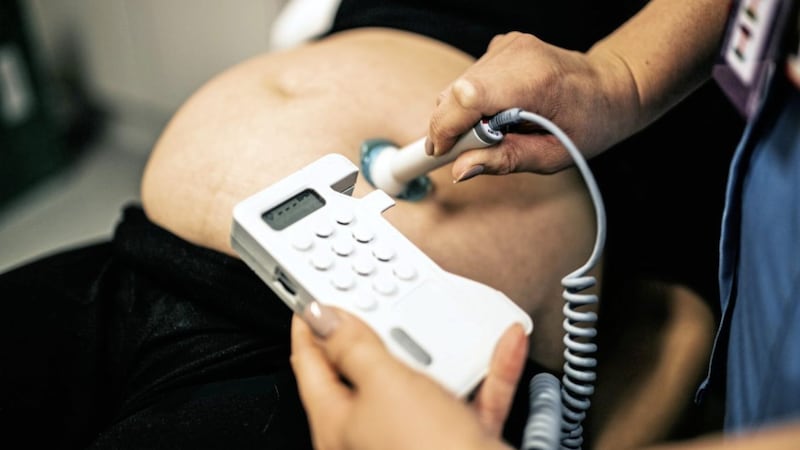A PREGNANT woman whom doctors failed to treat for a minor infection due to a catalogue of blunders almost died and lost her baby in a Northern Ireland hospital, it has emerged.
Despite testing positive for a condition when she was just three-months pregnant, the woman went untreated due to mistakes such as urine samples being incorrectly labelled and delays in reviewing results.
She developed life-threatening blood poisoning and was admitted to hospital when she was 31 weeks pregnant where she had to undergo an emergency caesarean section. The baby died shortly after birth while the mother became critically ill and was transferred to the Intensive Care Unit for three days.
The case is among 180 high-level probes into the most serious NHS failings in Northern Ireland over a six-month period between last October and March this year.
Known as 'Serious Adverse Incidents', they are investigated by the Health and Social Care Board.
Where multiple failings have been made - as in the case of the newborn's death - so-called 'learning letters' are sent to health professionals informing them of negligence and what improvements should be made.
The maternity failings were included in one of five letters sent to GPs earlier this year.
While the name of the maternity hospital was not disclosed, Board chiefs revealed the scale of the mistakes across the entire healthcare system - from GP services to antenatal care - and concluded that had the necessary antibiotic drugs been given to the pregnant women, "it could reasonably have been expected to make a difference to the outcome".
They disclosed she tested positive four times for urinary tract infections - but "communication" problems across services meant it went undetected.
The Board probe details repeated blunders: "Within secondary care, there were delays in reviewing results, the recommendation for treatment was not communicated to both the patient and their GP on every occasion, and a copy of one result was not retrievable," the learning letter to GPs states.
"Within primary care, due to absence of staff normally responsible for review and action of results, and a result being incorrectly labelled as 'already dealt with’, treatment was not offered to the patient.
"On one occasion, the communication between secondary and primary care incorrectly concluded that the patient's urine had been rechecked since the last positive result and had not detected infection."
A doctor last night said the case highlighted the "systems failings" across the entire sector.
"Failings like this are down to the fact health professionals are so busy and so under-resourced," he said.
The Board confirmed that learning letters had also been issued following the theft of prescription medicines from GP surgeries and a dental practice.
While the number of SAI referrals from health trusts were down slightly from the previous six month (when there were 200), investigators attribute this to revised reporting arrangements introduced last year.








